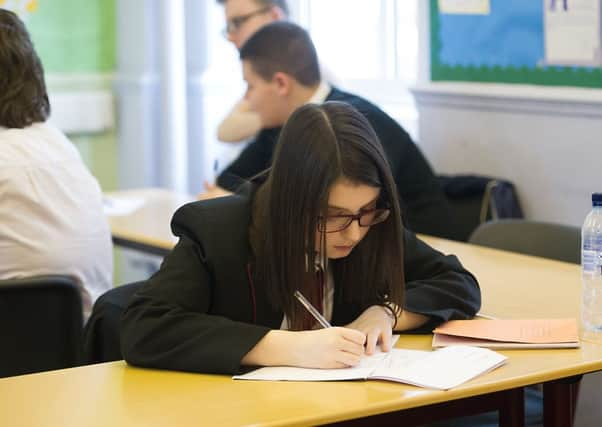Teachers need to talk to pupils about '˜IS and fake news'


Andreas Schleicher, director for education and skills at the Organisation for Economic Co-operation and Development (OECD), speaking at the International Summit on the Teaching Profession 2017, said there can no longer be the pretence that “we can isolate schools from the real world.”
“Disenfranchised young people (in countries of conference delegates) have joined the Islamic State. Some have ticked the boxes for formal education. We need to think hard abut the education experience,” Mr Schleicher said.
Advertisement
Hide AdAdvertisement
Hide AdSuggesting what teaching professionals could do at all levels of the education system, Mr Schleicher said: “Teachers can help students see the world through different perspectives and encourage divergent thinking and problem solving.
“We are dealing with truth and alternative truth. In the past it was easy, teachers could tell students to go and look something up in encyclopedia but now we have to help students understand that what is printed might not be true.
Mr Schleicher there were some young people who had rejected pluralism, making it very important that the school curriculum reflected the cultural origins of students.
Fred van Leeuwen, general secretary of Education International, said teachers could not escape the reality that students were bringing political views into the classroom.
“We have reports that some teachers find it difficult to address Islamic terrorism.
“Schools are not islands in society, every day teachers have to deal with children who come in with opinions. The educator has to respond in a knowledgeable way and with empathy and have the ability to help children disentangle fact from fiction.”
John Swinney, deputy First Minister and Cabinet Secretary for Education and Skills, welcoming delegates to the conference, said it was time to battle the “impact of deprivation.. we have to bring that to an end.”
“I want every child to have a fairer chance in life, no matter their circumstances, and a good education is key to unlocking that potential.
Advertisement
Hide AdAdvertisement
Hide Ad“That is why education is the Scottish Government’s defining mission, and we are committed to empowering schools, teachers and communities.
The theme of the conference, hosted jointly by the Scottish and Westminster governments, is ‘Empowering and Enabling Teachers to Deliver greater Equity and Improved Outcomes for All.’